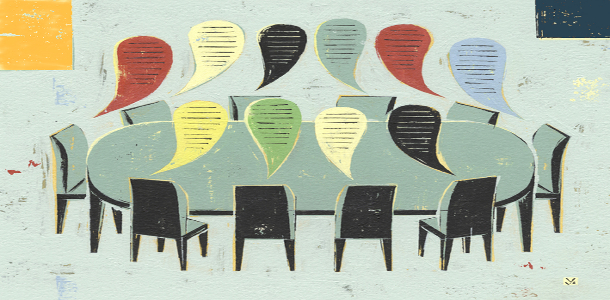




Posted by laurajane on Mar 9, 2016 in Uncategorized | Comments Off on How do you deal with nitpicking co-workers?
How do you deal with nitpicking co-worke...
If you’ve had co-workers and execs who think they can complete communications tasks better than you do, you’re not alone. Though from a designer’s point of view, a comic from The Oatmeal titled “How a Web Design Goes Straight to Hell” chronicles the pain that know-it-alls inflict on PR pros and communicators. Projects can easily get derailed when executives, managers and random co-workers feel obligated to make changes to your work—all so they feel like they’ve done their job. How many times have you heard something like this? · “I made an A in my college...

Famous writers’ idiosyncrasies
Corporate communicators can be an eccentric bunch. Whether it’s because we write for a living or because we write for a living in a corporate environment, we all have idiosyncrasies—and may develop more as we continue to pen phrases. We balance the sometimes-unreasonable demands of clients and executives with the need to craft messages that are clear and concise. We argue with others about which lazy corporate verbs should be banned from our writing. We correct the grammar in the books that we read out loud to our kids. Throughout my career in corporate communications,...

17 words about words
There are an estimated 750,000 words in the English language —but the average college-educated American has a vocabulary of up to 80,000 words. That leaves hundreds of thousands of undiscovered words. Let’s explore words about language and writing. How many of these do you know? Definitions are from Dictionary.com, Urban Dictionary, Wikitionary and Oxford Dictionaries: 1. Cheville: an unnecessary word used to complete a verse. 2. Cledonism: avoidance of words thought to be unlucky. 3. Epeolatry: the worship of words. 4. Hadeharia: constant use of the word...

6 great things that happen when you brea...
Deviating from the rules can be a liberating experience. As writers and editors, we frequently enforce style, grammar, spelling and punctuation guidelines within our organizations or for our clients. However, we also know that it’s occasionally necessary to disregard those same edicts. Here’s what can happen when we break writing rules: 1. Your sentences flow better. Take the rule of never starting a sentence with a conjunction (and, but, nor, for, yet, so). Doing so has always been frowned upon, but “and” and “but” are two of the most useful devices for...













